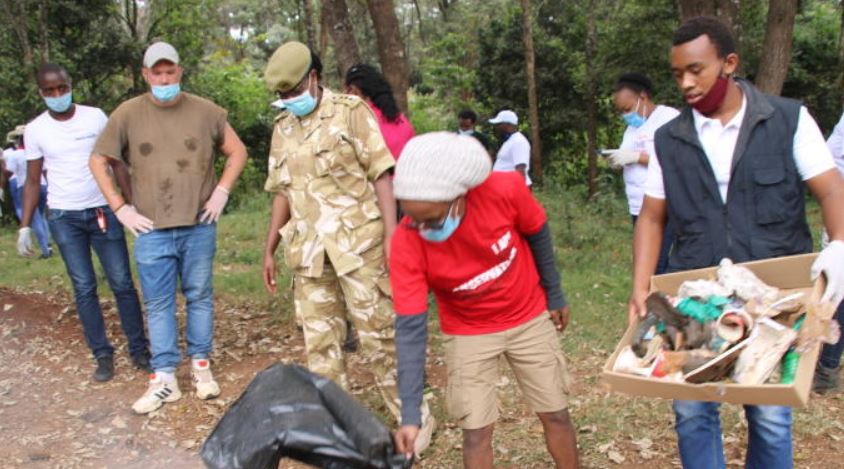×
The Standard e-Paper
Fearless, Trusted News

Music artist and radio presenter Anto NeoSoul joins tour firm operators and consultants in collecting bottles and plastics around the Nairobi National Park, Magadi road (PHOTO: David Gichuru)
The problem of plastic pollution in Kenya’s national parks has been too big for any single organisation to fix on its own.